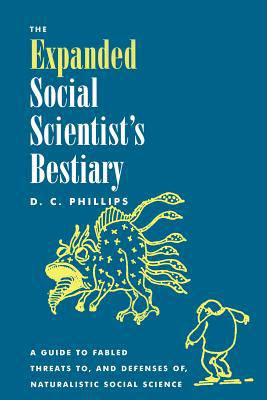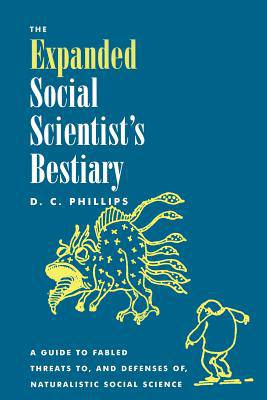
- Afhalen na 1 uur in een winkel met voorraad
- Gratis thuislevering in België vanaf € 30
- Ruim aanbod met 7 miljoen producten
- Afhalen na 1 uur in een winkel met voorraad
- Gratis thuislevering in België vanaf € 30
- Ruim aanbod met 7 miljoen producten
Zoeken
The Expanded Social Scientist's Bestiary
A Guide to Fabled Threats To, and Defenses Of, Naturalistic Social Science
D C Phillips
Paperback | Engels
€ 108,45
+ 216 punten
Omschrijving
The (Expanded)Social ScientistOs Bestiary addresses a number of important theoretical and philosophical issues in the social sciences from the perspective of contemporary philosophy of science. The book discusses and critiques the various arguments that purport to establish that it is a mistake to believe that a naturalistic social science- i.e. social science that in some way resembles the natural sciences- can be produced. It is intended to guide social scientists-researchers, teachers, and students-so that they will not fall victim to the beasts they will encounter in the course of their inquiries. Such beasts include holism, post-positivistic work in the philosophy of science, Kuhnian relativism, the denial of objectivity and value neutrality, hermeneutics and several others, both good and bad. This expanded and revised edition contains four new chapters tackling such contemporary beasts as Popperian rules, narrative research, and various forms of constructivism. The chapters presented in this volume are, as far as possible, self-contained so that each chapter can be consulted without the necessity of having read the others, thus making this volume an invaluable guide for faculty members and graduate students in the whole of the social sciences and related applied fields.
Specificaties
Betrokkenen
- Auteur(s):
- Uitgeverij:
Inhoud
- Aantal bladzijden:
- 296
- Taal:
- Engels
Eigenschappen
- Productcode (EAN):
- 9780847698912
- Verschijningsdatum:
- 15/11/2000
- Uitvoering:
- Paperback
- Formaat:
- Trade paperback (VS)
- Afmetingen:
- 152 mm x 229 mm
- Gewicht:
- 430 g

Alleen bij Standaard Boekhandel
+ 216 punten op je klantenkaart van Standaard Boekhandel
Beoordelingen
We publiceren alleen reviews die voldoen aan de voorwaarden voor reviews. Bekijk onze voorwaarden voor reviews.











